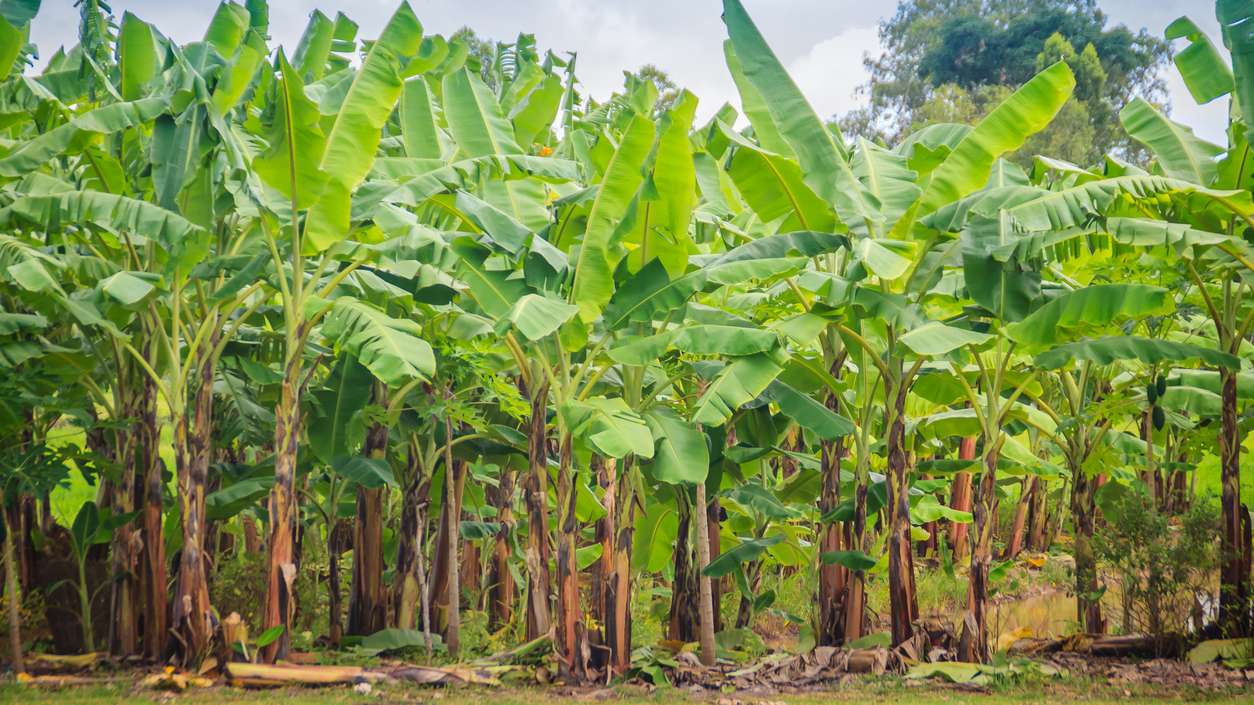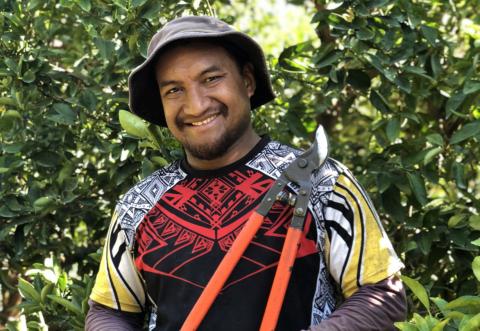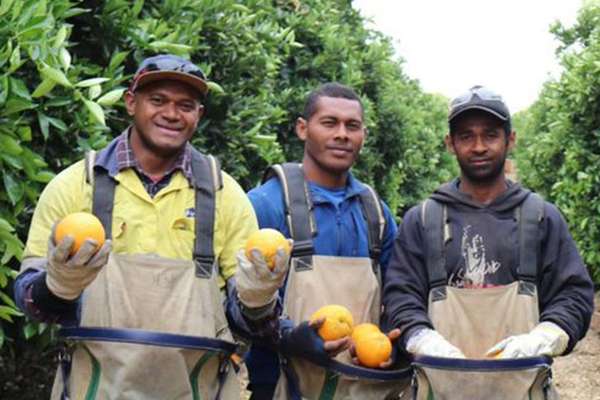
As the number of seasonal workers from the Pacific Islands continues to grow in Australia, understanding how health systems can better meet the needs of this population is key to ensuring universal access to health services
This project aims to identify opportunities for improving Blood blood-borne virus (BBV) and sexual health care in the areas of public health policy, health system and service delivery and clinical health care for Pacific Australia Labour Mobility (PALM) workers in regional Queensland. This study is examining the experiences (including barriers and enablers) of both PALM workers access and health care providers provision of care for BBVs and sexual health in regional Queensland.

This project is being conducted in 4 phases:
Significant challenges exist for PALM workers in accessing blood-borne virus and sexual health services
The Invisibility of Hepatitis B: Due to a lack of routine testing in PALM workers' home countries and Australia, there is often an unknown diagnosis of hepatitis B, making it difficult for clinicians to provide prevention, care and treatment.
System-level barriers and enablers: Immigration policy, inequitable healthcare resource distribution, out-of-pocket healthcare costs associated with private health insurance and Medicare ineligibility, alongside casual employment conditions are some of the main system-level drivers impacting access to BBV and sexual health services for PALM workers.
Public Health Policy Gaps: Despite acknowledging challenges for temporary visa holders, both Commonwealth and State public health BBV policies lack specific provisions for seasonal workers as a priority population group, which conflicts with principles of equity and universal health coverage.
Regional challenges: Due to the nature of seasonal work predominantly being in the horticultural sector, most PALM workers live and work in regional areas. Regional health services in Australia face challenges such as geographic isolation and the need for private transport, alongside a lack of GP and specialist health clinicians and services.
Cultural challenges: Regional health services that provide care for the majority of PALM workers in Australia have not been appropriately resourced to provide culturally appropriate care to the growing population of seasonal workers from Pacific Island Countries and Territories.
The goodwill of employers and health service providers: access to healthcare for PALM workers is often reliant on effective relationships developed inside and outside of the health system, alongside employers and health staff taking initiative and advocating for improved access to care.
Addressing these gaps is crucial for health equity and inclusive health systems.
Dr Haylee Fox is a postdoctoral health system, services and policy researcher whose work has predominantly been in sexual and reproductive health, with a focus on improving access and quality of care for underserved population groups in Australia.
Dr Robyn Preston (CQUniversity) is a social scientist and public health researcher. She is interested in health and community workforce issues in remote and rural communities and developing innovative models of care through health and community partnerships.
Dr Geraldine Vaughan is a public health researcher and educator with a particular focus on improving health access and systems through an equity lens - particularly women's health and communicable diseases.
Dr Gary Jones is a researcher with global experience working in the field of migrant workers’ health and livelihoods, including in the South Pacific.
A/Professor Cathy O’Mullan is a public health researcher whose research program works through a health equity lens and uses participatory and community-based research approaches to address a range of contemporary public health issues, notably ‘Healthy and Safe Sexual Experiences’. A key theme in her work is amplifying the voices of marginalised or vulnerable communities.
Professor Chris Doran is a Professor of Health Economics and leads the Cluster for Resilience and Wellbeing at Central Queensland University. Professor Doran is co-supervising PhD student Isaac Livai who is undertaking the projects economics analysis.
Prof Janya McCalman co-leads the Jawun Research Centre at CQUniversity. With a strong background in public health and infectious diseases, she has extensive experience working collaboratively with diverse communities and health service partners. Her research emphasises participatory approaches and the implementation of quality improvement strategies. Prof McCalman has been working with partner organisations in various regions to develop, implement, and evaluate intersectoral strategies to enhance the wellbeing of underserved populations.
Billingsley Kaambwa is an associate professor in health economics whose research focuses on economic evaluations of healthcare technologies. A/Prof Kaambwa is co-supervising PhD student Isaac Livai who is undertaking the projects economics analysis.
Isaac has over two decades of experience as a General Practitioner in Papua New Guinea. Isaac is a PhD candidate on this project, with his research focusing on the cost and benefit of chronic hepatitis b management in PALM scheme seasonal workers in Queensland.
The project is guided by a steering committee and external stakeholders from the following organisations:
Australasian Society for HIV, Viral Hepatitis and Sexual Health Medicine (ASHM)
Brisbane South Primary Health Network
Refugee Health Network Queensland
Ethnic Communities Council of Queensland (ECCQ)
This project is funded by the Commonwealth Department of Health and Aged Care through their Blood Borne Viruses and Sexually Transmissible Infections Research Program (Grant ID 4-H3C9CZ2)
Read the full report about the findings and final recommendations of the research project “Seasonal Labour, Systemic Injustice: A Research Report on Health Inequities in the Pacific Australia Labour Mobility Scheme.

Read the report summary about the findings and final recommendations of the research project “Seasonal Labour, Systemic Injustice: A Research Report on Health Inequities in the Pacific Australia Labour Mobility Scheme.
Read about the health inequalities in the Pacific Australia labour mobility scheme summary.
If you would like to learn more about our research, or if you are a seasonal worker or care provider interested in contributing to our project, please contact us.


CQUniversity Australia is a trading name of Central Queensland University
ABN: 39 181 103 288
RTO Code: 40939
CRICOS: 00219C
TEQSA: PRV12073